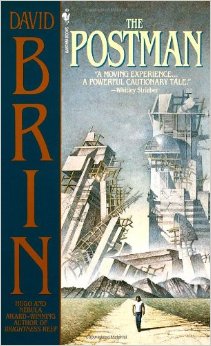
Not really the statement you want to hear when dealing with the topic of the Apocalypse. However, this time it’s just a matter of being a week late with
the next question for the panel. Last week I was attending LDStorymakers 2014. While I was there, I had the chance for some face-to-face discussion with Margot
Hovely and Angie Lofthouse. (I hope that isn’t one of the signs of the
Apocalypse.)
Enough of the chitty-chat, let’s get to this month’s question.
Other than the stories you have written which is the best apocalypse movie or novel?
How do you define best in this category? Is it the best depiction of an apocalypse setting? Is it the most thought provoking scenario involving a great
destruction? Or is it simply a matter of what story I liked best?
I guess it doesn’t matter, because I am going to look at all three.
The best depiction of an apocalypse setting, in a novel, I think goes to The Postman—the novel by David Brin not the movie with Kevin Costner. It was realistic. It dealt with the challenges of rebuilding civilization after a cataclysmic event. And it was memorable.
Honorable mentions to go: The Stand by Stephen King, The Folk of the Fringe by Orson Scott Card, and the War of the Worldradio broadcast by H. G. Wells.
The best depiction of the apocalypse in a film is, in my opinion, Silent Running starring Bruce Dern as the lone attendant to all of the Earth’s eco-systems—in space. This came out during the 70s when so many of great anti-establishment films were made.
Honorable mentions go to: Mad Max, Terminator, and Reign of Fire (for anyone who likes a little fantasy element thrown into their apocalypse stories).
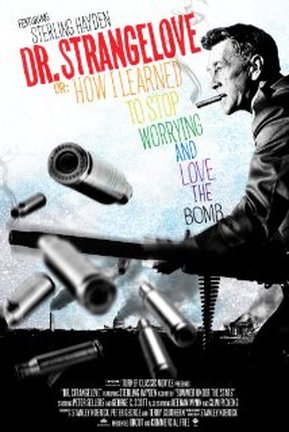
involves a twist on the vampire legend. Unfortunately, this element of the story failed to be effectively covered in any of the movies. Although, Omega Man with Charleston Heston
probably covers it best.
Honorable mentions go to: War Day by Whitley Strieber, Alas Babylon by Pat Frank, and World War Z by Max Brooks.
In film, I think have to give this to Dr. Strangelove: or How I Learned To Stop Worrying and Love the Bomb. Yep, it’s wacky. But I think that it takes a look at a very serious subject in a way that uniquely stands out.
Honorable mentions go to: The Matrix (a close second), Planet of the Apes, and Night of the Living Dead.
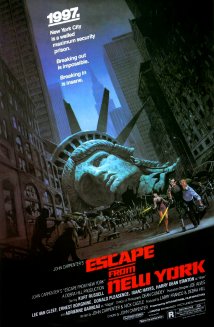
Honorable mention goes to: Hiero’s Journey by Sterling E. Lanier, Battlefield Earthby L. Ron Hubbard, and Recall Not Earthby C. C. MacApp.
My favorite apocalypse movie is Escape From New York with Kurt Russell. It is dark and gritty. Carpenter was at the top of his form for this film. It
spawned a sequel that was disappointing and pretty much a rehash of the original.
Honorable mention goes to: The Blood of Heroes(which also qualifies as a sports movie) and Planet of the Apes (again).
Next week we hear from the rest of the panel about what they think are the best stories in the apocalyptic genre. I can hardly wait. See you then.
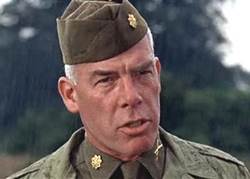
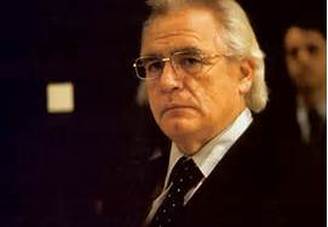
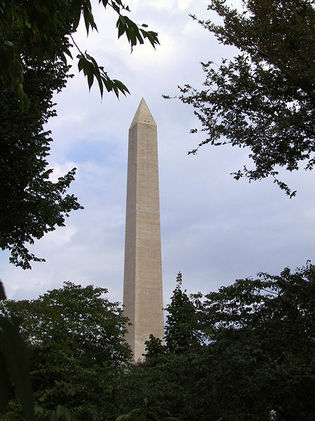
 RSS Feed
RSS Feed
